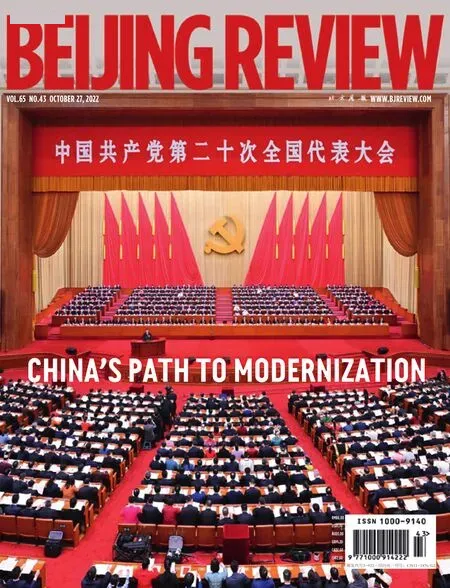Say No to Tech Hegemony
By Lan Xinzhen
The U.S. Department of Commerce on October 7 announced a sweeping set of export controls on technologies,including unprecedented steps to limit the sale of advanced computer chips to China, on the grounds of so-called national security concerns.Washington’s ban on hi-tech exports to China marks a huge gambit for economic supremacy for the next decades, with the Chinese Government referring to the move as “typical sci-tech hegemony.”
The U.S. has been strictly limiting the Chinese semiconductor industry’s access to key technologies, such as high-performance computing chips and chip-making equipment, plus the Entity List featuring 260 Chinese entities consisting of mainly companies and research institutions involved in 5G, artificial intelligence (AI) and other advanced technologies. It intends to curb China’s upward momentum in AI and supercomputing development.
The U.S. is simply trying everything possible to trip up China’s sci-tech progress. Last month,U.S. Congress passed the CHIPS and Science Act, meaning U.S. semiconductor companies that accept incentives as part of the $280-billion act will be barred from investing in China.
These practices reflect a gloomy American state of mind, one unwilling to see others make sci-tech progress and always attempting to preserve its supremacy by knocking any potential challengers off course. Its abuse of export controls goes against both the principle of fair competition as well as international trading rules, and will inevitably disrupt the global semiconductor supply chain as well as international trade on the whole.
While hobbling China’s technological development, the U.S. sci-tech hegemony will also hurt the interests of American businesses. Its tightened export controls on chips will undoubtedly deal a blow to manufacturers focusing on high-performance AI chips but, at the same time,these controls will come undone as the country deprives its own semiconductor sector and related equipment producers of the vast Chinese market.

American political interference in economic activities in the past years has not only hindered the Sino-U.S. economic relationship, but also cast a shadow over global economic growth. Yet these actions will by no means constrain China’s sci-tech development; on the contrary, they might actually spur China’s scitech innovation.
The semiconductor industry is the linchpin of the Fourth Industrial Revolution, as the booming of AI, robotics and related technologies puts more demands on this field. According to statistics from the U.S. Semiconductor Industry Association, in 2021, output value of semiconductors reached $555.9 billion, up 26 percent over 2020.
Accounting for 35 percent of the global trade of semiconductors, China is the world’s largest semiconductor market, but it strongly relies on imports. Thanks to U.S. containment, China is now pouring major investment into semiconductor research and development, moving ever closer to self-sufficiency in terms of necessary equipment like lithography tools and etching machines.
For years, Chinese scientists have successfully transformed the country into a sci-tech leader,achieving self-reliance and self-improvement in the field. Many industry insiders believe while the Chinese semiconductor industry has to brace for the pain, Washington’s latest move may well inspire it to pull itself up by the bootstraps and even overtake its rivals someday.
The fact nine persons under the destination of China were removed from the Unverified List, a trade restriction list published by the U.S.Department of Commerce’s Bureau of Industry and Security, consisting of certain foreign persons, entities or governments, proves that the two countries can, in the spirit of mutually beneficial cooperation, find solutions that benefit businesses from both sides. Sci-tech progress, either on the part of the U.S. or China, will help drive society’s evolution. BR

